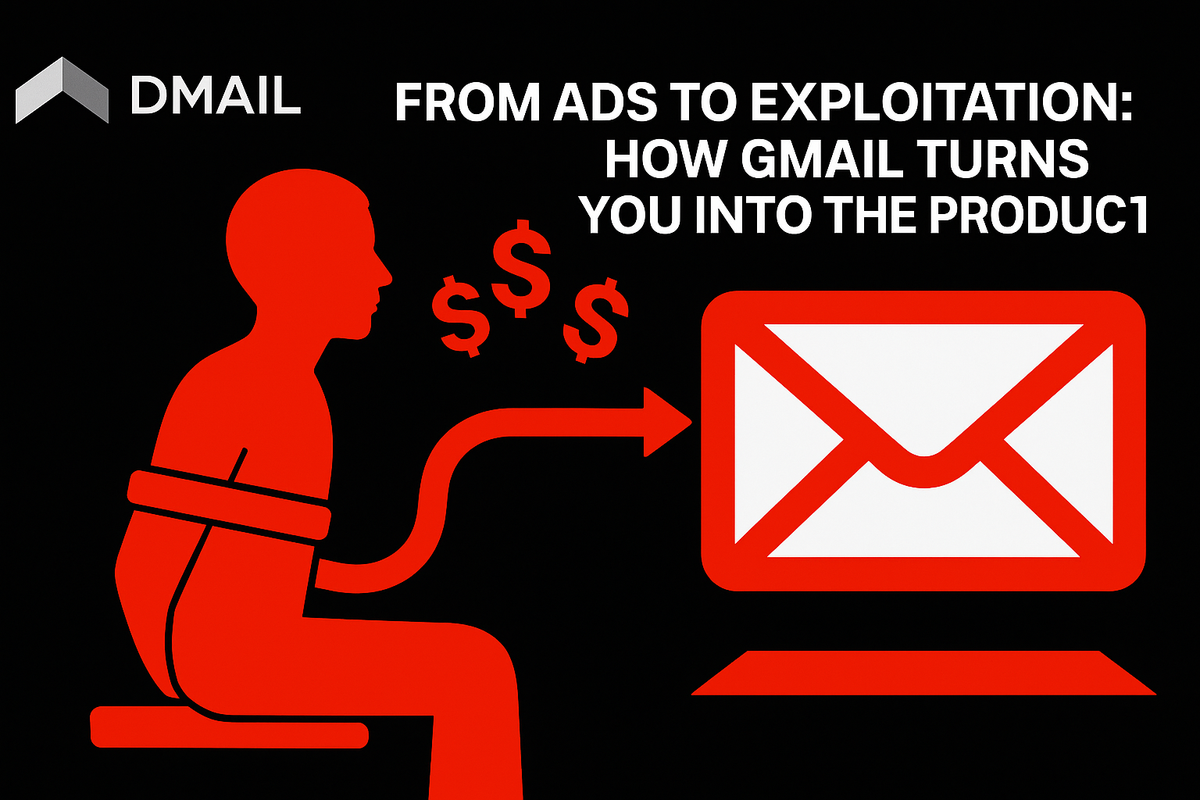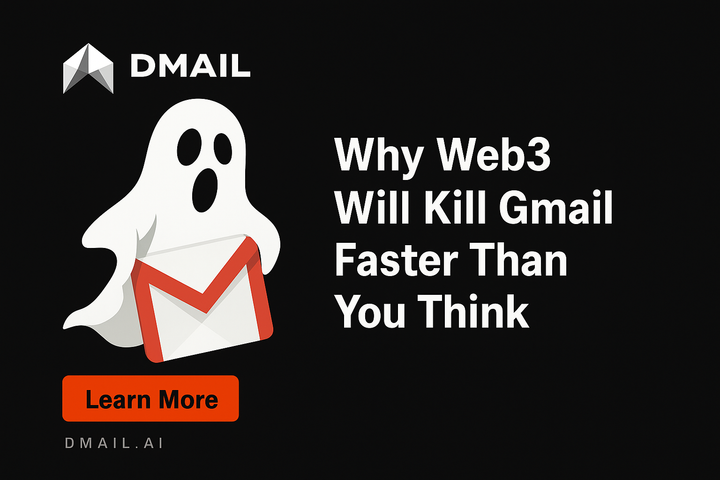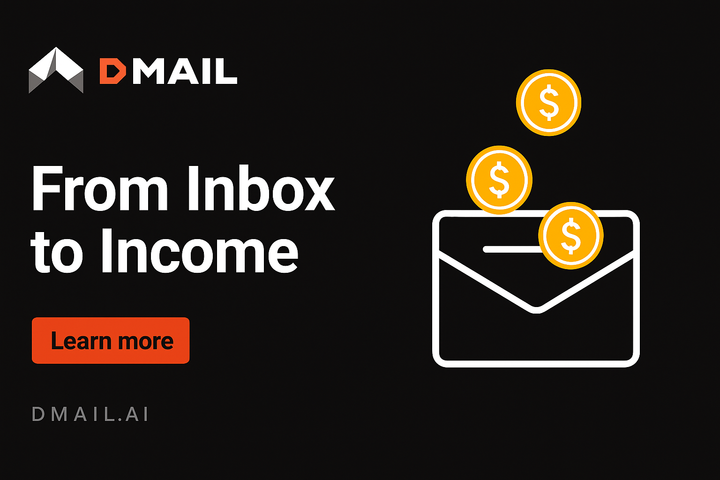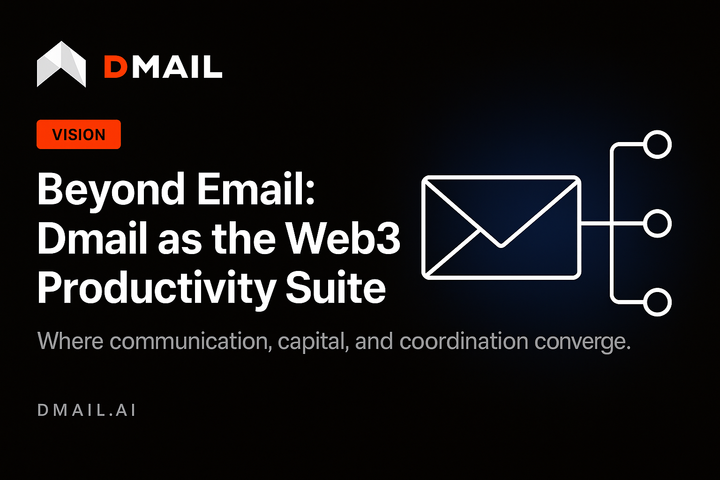From Ads to Exploitation: How Gmail Turns You Into the Product
Gmail’s exploitation model isn’t a bug; it’s the feature that drives Google’s trillion-dollar empire. ProtonMail’s half-steps aren’t enough to counter it. The only real answer is to move beyond Web2 entirely.

...(And How DMAIL Flips the Model)
When Gmail launched, it revolutionized email with speed, storage, and slick design. For years, it felt free. But “free” was always an illusion. Behind the clean interface, Gmail has been quietly turning users into its most valuable product. Every click, every message, every login is fuel for Google’s data engine — an engine designed to monetize human attention at scale.
And it works. Gmail has over 1.8 billion users, yet none of them pay a cent. Instead, they pay in something far more valuable: their privacy.
The Exploitation Model
Gmail’s business is ads. Period. The platform has been fined in Europe for inserting advertising content directly into inboxes. Even when Google insists it no longer “reads” emails, the reality is simpler: data mining has evolved. It’s not about reading text word for word; it’s about pattern recognition, metadata, cookies, and profiling.
Here’s how the model works:
- Ads in your inbox — companies pay to land beside your most personal communications.
- Behavioral tracking — data from your inbox, search history, YouTube, and maps is cross-referenced to build your digital shadow.
- Monetization without consent — every “free” service adds another layer to your advertising profile.
You are not the customer. You are the inventory.
Why ProtonMail Isn’t the Answer
ProtonMail built its brand on being the “privacy-first” alternative. And yes, it’s better than Gmail at shielding message content. But it still can’t break free from Web2 limitations:
- Subject lines aren’t encrypted.
- Metadata can still leak.
- Servers are centralized in Switzerland, subject to law enforcement requests.
- Free plans restrict storage and features, nudging users back into freemium dependence.
ProtonMail addresses part of the problem but doesn’t change the model itself. It’s a safer walled garden, but a walled garden nonetheless.
DMAIL: Flipping the Model
DMAIL doesn’t play the old game. It doesn’t try to patch over exploitation; it rewrites the rules.
- User Ownership, Not Surveillance
Your identity is tied to your wallet. No one can suspend your account, inject ads, or track your behavior for profit. - Mail-to-Earn Economy
Instead of selling your attention to advertisers, DMAIL rewards you directly for engagement. Messages, subscriptions, and project communications funnel value to the user, not the platform. - No Ads, No Hidden Costs
With DMAIL, there are no sponsored emails, no trackers, no opaque profiling. The business model is transparent — tokenomics and incentives flow through the system, visible on-chain. - Cross-Chain by Design
Gmail locks you into Google. ProtonMail locks you into a single provider. DMAIL connects you to Web3 itself: DeFi, DAOs, NFTs, and the broader decentralized ecosystem.
The Optics of Ownership
Think about the difference in optics:
- Gmail makes you feel like a tenant in someone else’s property, one policy update away from eviction.
- ProtonMail makes you feel like a guest in a more private hotel — but you’re still under someone’s roof.
- DMAIL makes you the landlord of your own digital space. No landlord, no lockouts, no ads creeping through the door.
That’s a shift users can feel. And once they experience it, there’s no going back.
The Future Is User-Powered
Gmail’s exploitation model isn’t a bug; it’s the feature that drives Google’s trillion-dollar empire. ProtonMail’s half-steps aren’t enough to counter it. The only real answer is to move beyond Web2 entirely.
DMAIL flips the script. It rewards users, protects sovereignty, and integrates directly into the next-generation Web3 economy. Migration isn’t just about privacy anymore. It’s about power, control, and ownership.
The era of being the product is over. With DMAIL, you own the inbox — and the future of communication.

Connect with Dmail: Website | Twitter | Discord | Github | Telegram





Comments ()